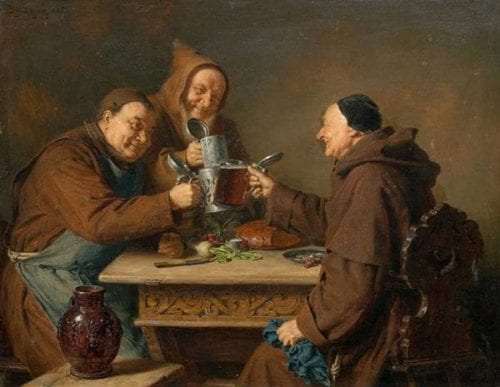My research in this area stems from a marriage of interests in world history, sociological theory, and (of course) beer. Many accounts of the history of beer acknowledge the achievements of medieval monks, particularly the scale and skill that they applied to its production. This is a funny historical anecdote, to be sure, but also a curious one. Why would a monk, living an ascetic lifestyle in a monastic enclave, be especially good at making and distributing beer? Actually, some monastic orders were highly productive during this period, beyond the production of beer. This got me thinking about ol’ Max Weber and the Protestant Ethic thesis, particularly his concept of “ascetic rationalism” that he used to explain the transformation of economic behavior during the Reformation and the rise of modern capitalism. Following the lead of contemporary Weberian scholars, I argue that a similar transformation was fostered by monastic communities centuries before the Reformation and can help explain why monks displayed a kind of mastery over productive endeavors like beer brewing.
Relevant publications:
- (2012) “Monastic Asceticism and the Rationalization of Beer Making in the Middle Ages,” AVISTA Forum Journal 21(1/2): 55-61.
- (2017) “The Rationalization of Craft Beer from Medieval Monks to Modern Microbrewers: A Weberian Analysis.” In Untapped: Exploring the Cultural Dimensions of Craft Beer, Nathaniel Chapman, J. Slade Lellock, and Cameron Lippard (eds.). West Virginia Univ. Press: 59-79.

